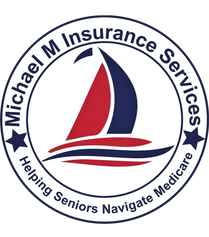Living a healthy lifestyle becomes more important—but also more challenging—as we age. For
many seniors, the idea of exercising or changing eating habits can feel overwhelming. But
here’s the truth: staying healthy doesn’t require drastic changes. Even small, consistent actions
can help you feel better, move easier, and live longer.
If you’re enrolled in Medicare, you might be surprised at how many resources are already
available to support your well-being—often at no cost.
This guide offers 10 simple, guilt-free tips to help Medicare beneficiaries age 65 and older enjoy
a healthier, more active lifestyle—without pressure or perfection.
1. Use Your Free Medicare Wellness Visits
Medicare provides a free “Welcome to Medicare” visit during your first 12 months of
enrollment, followed by an Annual Wellness Visit every year.
These visits:
- Help you create a personalized prevention plan
- Review your medical history and medications
- Identify health risks before they become serious
If you haven’t scheduled your wellness visit yet, it’s one of the easiest and most valuable ways
to stay ahead of health issues.
2. Take Advantage of Free Medicare Gym Programs
Many Medicare Advantage plans—and some Supplement plans—offer free or low-cost gym
memberships through programs like:
- SilverSneakers
- Renew Active
- Silver&Fit
You don’t need to be a fitness buff to benefit. Whether it’s water aerobics, chair yoga, or just
walking on a treadmill, regular movement improves energy, balance, sleep, and mood.
These programs often include online classes too, so you can exercise from the comfort of
home.
3. Move a Little Every Day
You don’t need a gym membership to stay active. Even 10 to 15 minutes of movement each day
can make a difference.
Try:
- Walking around the block
- Light stretching during TV commercials
- Gardening or sweeping
- Dancing in the kitchen
Staying active on Medicare doesn’t mean strenuous workouts. It simply means making
movement part of your day in a way that feels good for your body.
4. Eat Healthier—One Small Step at a Time
You don’t have to change your entire diet overnight. Start by adding a few healthy choices:
- Eat colorful fruits and vegetables
- Swap processed snacks for nuts or yogurt
- Choose whole grains instead of white bread or pasta
- Cut back on sugar-sweetened drinks
These changes support heart health, energy levels, and digestion. Plus, many Medicare
Advantage plans offer meal delivery or nutrition support services—check your plan to see
what’s available.
5. Stay Social to Stay Sharp
Social interaction is key to mental and emotional health. According to recent research, seniors
who stay connected often live longer and experience fewer health issues.
Try:
- Visiting with friends or family
- Joining a local senior center or faith group
- Volunteering at a food pantry or school
- Attending community fitness or art classes
Medicare doesn’t directly cover social activities, but your overall health and happiness benefit
from meaningful connection.
6. Prioritize Better Sleep
Sleep affects nearly every aspect of your health—memory, balance, immune function, and
mood.
If you’re having trouble sleeping:
- Go to bed and wake up at the same time daily
- Avoid caffeine or heavy meals in the evening
- Use a fan or white noise machine
- Keep your bedroom dark and cool
Talk to your doctor if sleep problems persist—poor sleep isn’t something you just have to “live
with.”
7. Stay on Top of Medicare-Covered Preventive Services
Medicare covers many preventive care services that help you stay healthy, including:
- Annual flu, COVID-19, and pneumonia vaccines
- Screenings for cancer, diabetes, heart disease, and osteoporosis
- Depression and alcohol misuse screenings
- Tobacco cessation counseling
These services are often free under Original Medicare or Medicare Advantage plans .
Preventive care is one of the most underused benefits—so don’t skip it.
8. Build Strength and Flexibility to Prevent Falls
Falls are a leading cause of injury in adults over 65. But simple exercises can help improve your
strength, balance, and coordination.
Try:
- Chair exercises or tai chi
- Resistance band workouts
- Standing on one foot while brushing your teeth
- Gentle yoga or stretching routines
Many Medicare-covered fitness programs for seniors include fall prevention classes—check
your benefits.
9. Drink More Water
Seniors are more prone to dehydration, especially during hot months or when taking certain
medications.
Simple hydration tips:
- Drink water with every meal
- Carry a reusable water bottle
- Eat water-rich foods like cucumbers and watermelon
- Flavor water with lemon or mint to make it more enjoyable
Feeling fatigued, dizzy, or confused? You might just need more water.
10. Be Patient and Kind to Yourself
This may be the most important tip of all: don’t beat yourself up if you’re not “doing everything
right.” Health is a journey, not a checklist.
You’re not behind. You’re not too late. You’re doing what you can, and that counts.
Start with one or two small changes. Over time, small steps create big results.
FAQ: Healthy Living and Medicare Benefits
What wellness benefits does Medicare cover?
Medicare covers an initial “Welcome to Medicare” visit, Annual Wellness Visits, and many
preventive services like screenings and vaccines—at no cost to you.
Are gym memberships free with Medicare?
Many Medicare Advantage plans offer free or discounted gym memberships through
programs like SilverSneakers or Renew Active. Original Medicare alone doesn’t include fitness
benefits.
What’s a good way for seniors to start exercising?
Start with light walking, stretching, or chair yoga. Aim for short sessions—10 minutes is better
than none. SilverSneakers and other programs offer beginner-level classes both in person and
online.
Does Medicare cover nutrition support or healthy meals?
Some Medicare Advantage plans offer meal delivery services after hospital stays or as part
of chronic care management. Check your plan for details.
Final Thoughts: Small Changes, Big Rewards
Healthy living doesn’t require perfection. It requires patience, consistency, and support—and
Medicare provides more of that support than many people realize.
If you’re unsure about your current benefits, a quick review of your Medicare plan can uncover
hidden tools to help you feel your best.
And in the meantime? Go for a short walk. Call a friend. Drink some water. You’ve already
started.

